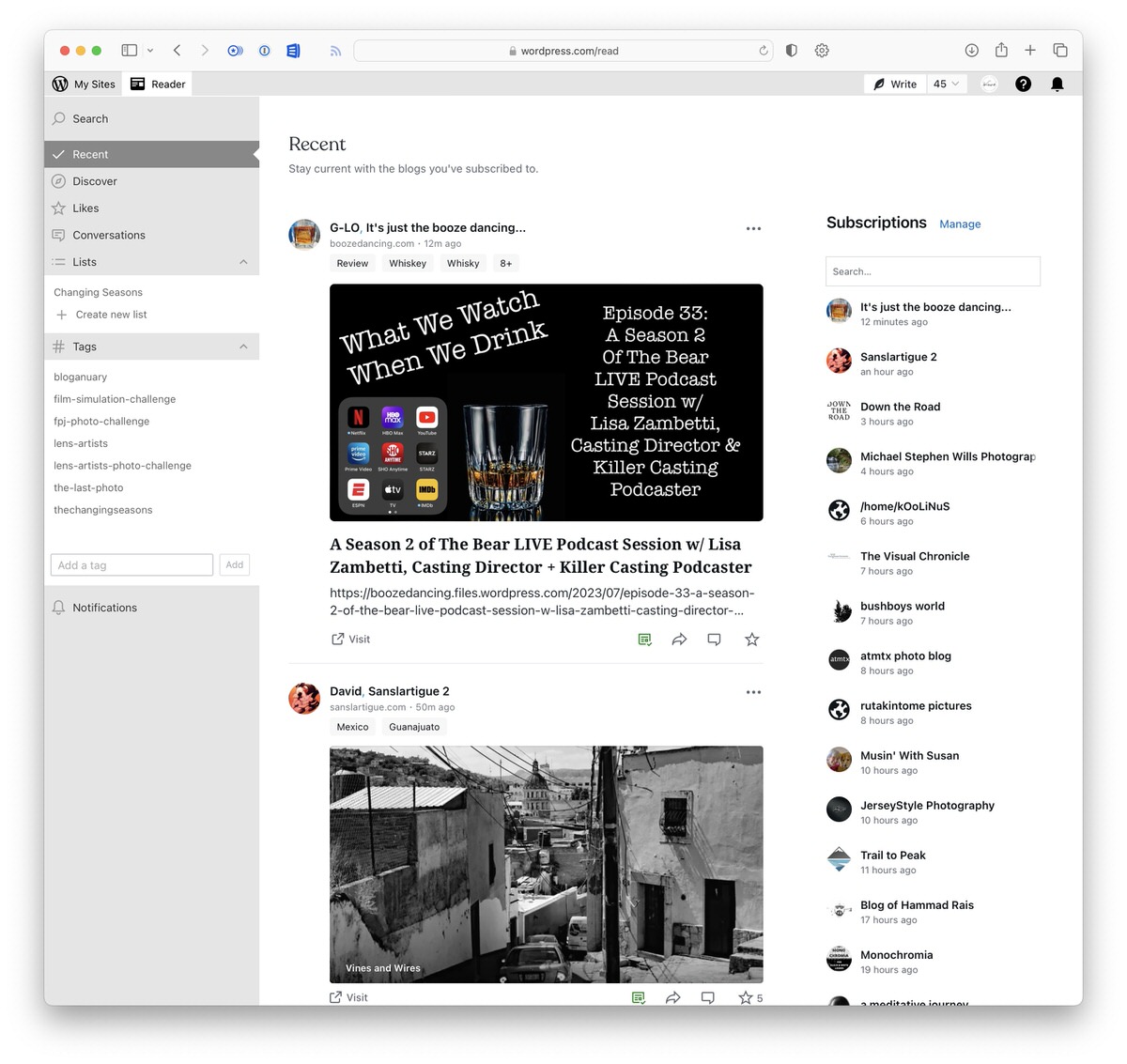In a recent blog post, Jason Becker reflected on the challenges of measuring engagement and building communities on personal blogs when you don’t have analytics. Jason linked to a blog post by Monique Judge calling for a return to personal blogging.
This paragraph by Monique resonated with me.
People built entire communities around their favorite blogs, and it was a good thing. You could find your people, build your tribe, and discuss the things your collective found important.
That’s what I want when I use silos such as X, Threads, Facebook or micro.blog. But when compared to IndieWeb principles, these platforms often fail to satisfy my needs for a sense of community and communication. One key issue is that these platforms demand that I establish a distinct identity within their closed ecosystems, and they impose rigid rules and guidelines enforced by centralised authorities, usually dictated by one person.
@camacho I try my best to adhere to the IndieWeb principles of POSSE. I host my blog on WordPress because, unlike micro.blog (µB), I control the platform. µB is just another silo platform, after all.
This is limiting and frustrating, as it restricts my freedom to interact and express myself authentically. To avoid these constraints, I have tried alternative solutions, like decentralised social networks or open-source platforms, where users have more control over their online presence and interactions. These platforms aim to promote user autonomy and reduce the influence of central authorities. But I still find them lacking.
This got me thinking about social RSS readers and WordPress Reader.
A social reader can refer to two concepts related to reading and social interactions. A social reader is a modern interactive reader that allows you to directly respond to posts (with a like, comment, etc.) right there in line with posts as you read them (as people do in social media), in contrast to legacy feed readers which are one-way read-only experiences that provide no mechanisms to interact with or respond to posts.
When using a social reader app, individuals can discover articles others share in their network, follow specific topics or publishers, and see what their friends are reading or recommending. The app might curate personalised content based on the user’s interests, preferences, and social connections. This combination of reading and social engagement enhances the user experience by fostering discussions, facilitating content sharing, and expanding one’s knowledge through diverse perspectives.
Social reader apps can increase engagement with content and a sense of community among users who share similar interests. A social reader represents a convergence of content aggregation and social networking.
Google Reader was an example of a popular social reader. It offered features that allowed users to share articles with friends and engage in discussions around the shared content. A social reader represents a convergence of content aggregation and social networking.
My WordPress posts were syndicated to Facebook (via Automattic’s JetPack) before they shuttered their API access. Automattic and µB stopped supporting Twitter after Elon Musk raised prices. I still syndicate to µB via the RSS feed, but the presentation is weak without Open Graph.
WordPress has a built community via JetPack and WordPress Reader. WordPress Reader has been around since 2013 and is the WordPress equivalent of µB’s chat feature. I wouldn’t be surprised if that’s what inspired Manton. Most of my comments and readership come via WordPress Reader.
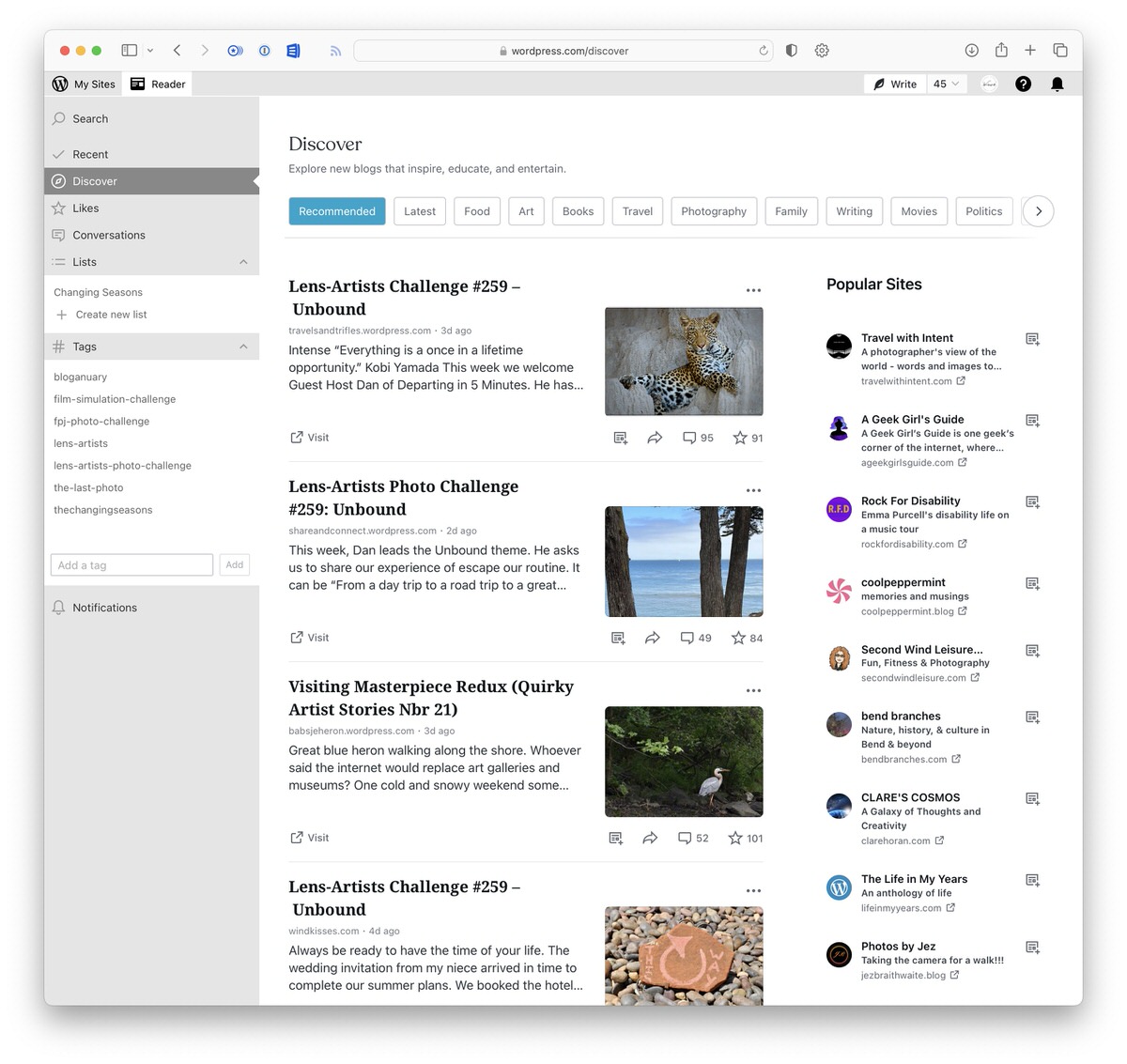
I was syndicating to Mastodon, but there is some problem with duplicates being created on my m.b. time when I do that, so I disabled it.
I know to have the sort of online life I want, I need to participate in multiple small, or at least not billionaire-run, communities. No small single service, community, etc... can meet even my meagre needs.
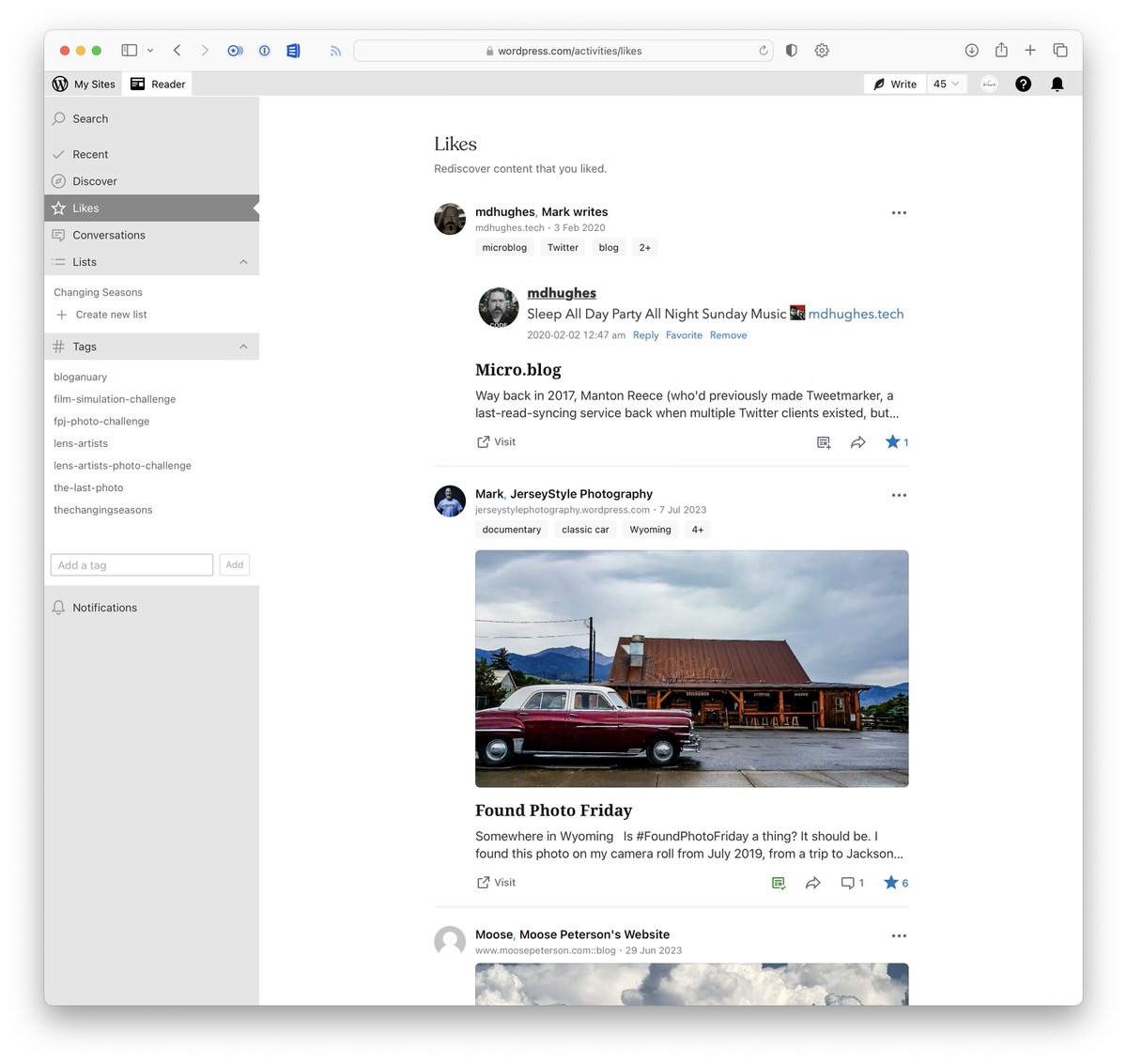
While I don't have a large following on Twitter (about 1,500) or Instagram (around 500), I've been fortunate not to encounter the common issues that some people associate with these platforms.
One of the reasons for my positive experience on large social platforms is that I already have genuine in-real-life connections with friends and family on those platforms.
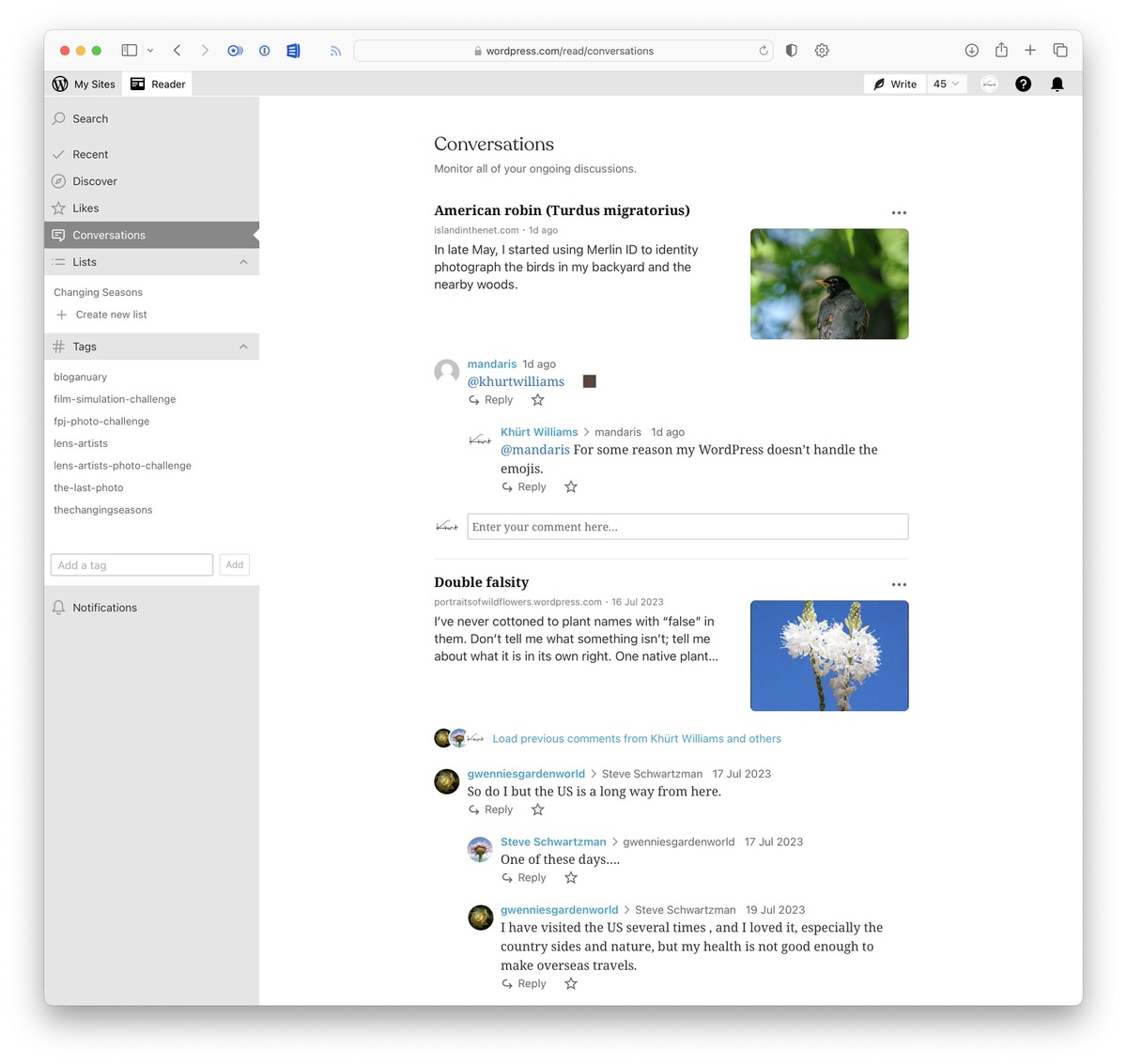
Forming deep connections with strangers solely through casual and trivial conversations on social media is challenging. While I value my interactions online, I think true belonging and understanding can only be found through genuine, in-person encounters. It's easier for me to fully know someone beyond their avatar and screen name with the opportunity to meet face-to-face. I’ve never expected to make strong "friends" online.
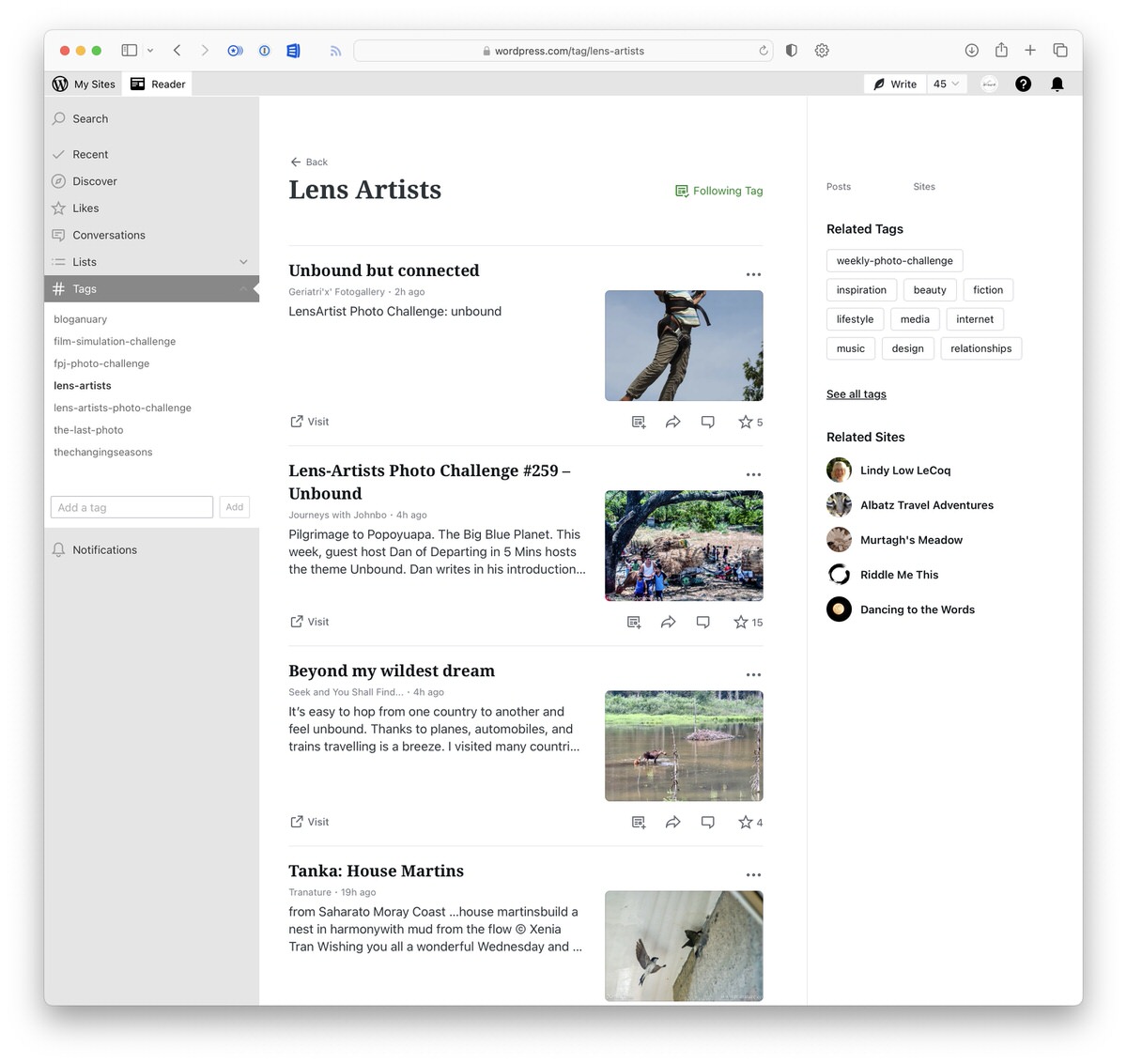
Maybe part of my frustration with m.b. is that I know what’s possible. I hope that ActivityPub and Wedmentions (or a combination of the two) become part of the popular blogging and social media platforms to foster inter-blog inter-platform messaging that links everything together.
On this Day in History: On 19 November 2006, Nintendo released the Nintendo Wii in the United States. It was Nintendo’s fifth major home game console, following the GameCube.
